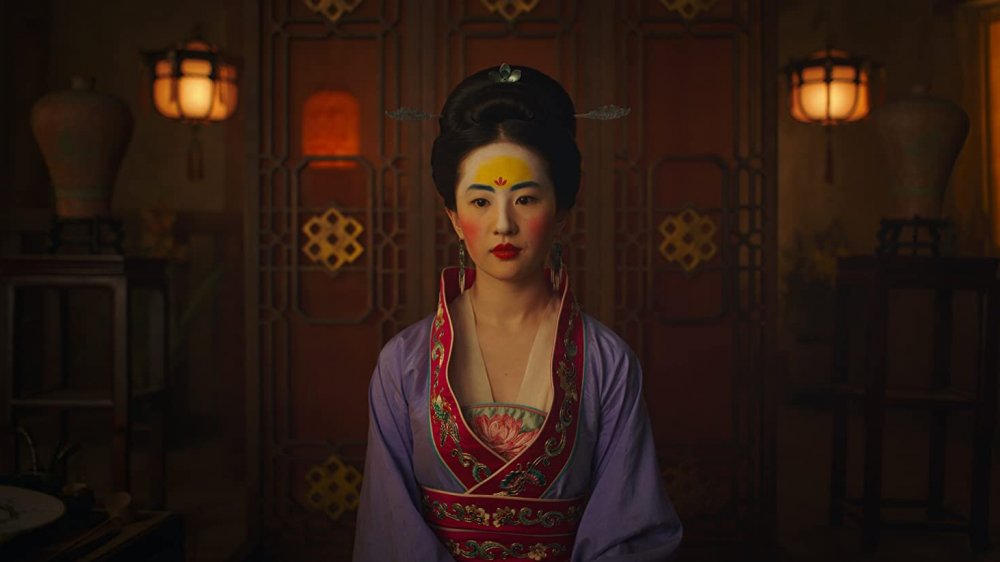The Mulan Outrage Is Causing All Kinds Of Problems For Disney
Amid yet another round of controversy surrounding its Mulan remake, Disney admits that the backlash to the film is creating a web of issues for the company.
After months of online protests following comments from its star, Liu Yifei, Disney has once again come under fire following the film's VOD and theatrical debut. In the week following its release, it was revealed that the studio had given special thanks in the movie's credits to at least a dozen Chinese institutions involved in helping complete the film's production. Among those were four Chinese government bodies located in the Xinjiang region and the Public Security and Tourism bureaus for Turpan, the latter of which the U.S. government has identified as being involved in "human rights violations and abuses" (via CNN). That includes the mass detention of over a million Chinese Muslims in camps, the existence of which China's government first denied, and then ascribed to being "vocational education and training centers" (via PBS).
While Disney had not previously acknowledged the film's mounting controversies, during an appearance at a Bank of America conference, Bloomberg News reported that Disney's chief financial officer Christine McCarthy stated that filming parts of Mulan in the Xinjiang region had "generated a lot of issues for us."
McCarthy explained that most of Mulan was shot in New Zealand, and the decision to film in the Xinjiang region was "an effort to accurately depict some of the unique landscape and geography of the country for this historical period piece." She then noted any filming in the country, which she said included 20 different locations across China, requires approval from the Chinese government, and that "it's common to acknowledge in a film's credits the national and local governments that allowed you to film there."
Despite the cred, China is halting local media coverage of Mulan
The impact of Mulan's various controversies may not be entirely clear just yet, but when asked whether the film's latest controversy might have an impact on the film's financial success, McCarthy said she wasn't "a box-office predictor."
"It has generated a lot of publicity," she told the conference crowd. "Let's leave it at that."
Unfortunately, it doesn't seem like any of that negative publicity will be going anywhere for now. Around the time McCarthy issued his statement, news dropped that the Chinese government banned Mulan coverage by local media outlets. Anonymous sources within the Chinese media reported that the government had given strict orders to stop publicizing the film. Though no explanation was reportedly given, its believed to be in response to the criticism around the movie's Xinjiang region filming.
This latest development is just another notch in the long line of controversy surrounding Disney's latest addition to its live-action library, which actually stretches back to August 2019. That's when the film's star Crystal Liu Yifei expressed support of the Hong Kong police in the midst of the region's ongoing pro-democracy protests. Her comments sparked an online protest, which followed the film to its March premiere and, eventually, its September release. These kinds of culture wars are only likely to happen more often as Hollywood increasingly relies on Chinese box office returns to fuel profits. With the effects of the pandemic lingering longer in the U.S. than China, these economic pressures are only amplified. Disney took a big risk dropping Mulan this summer with a mixed release strategy. We're still seeing that gambit play out.

